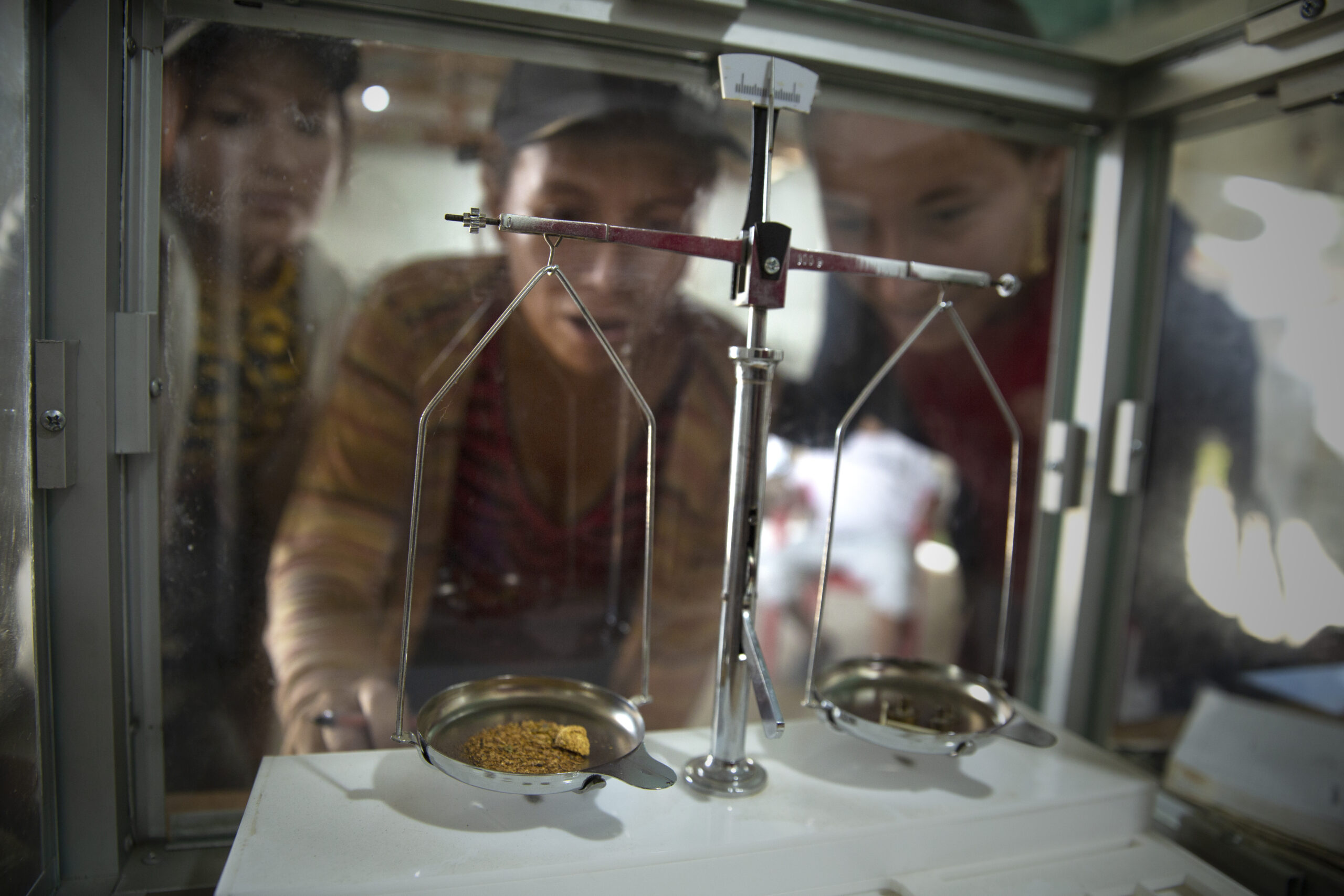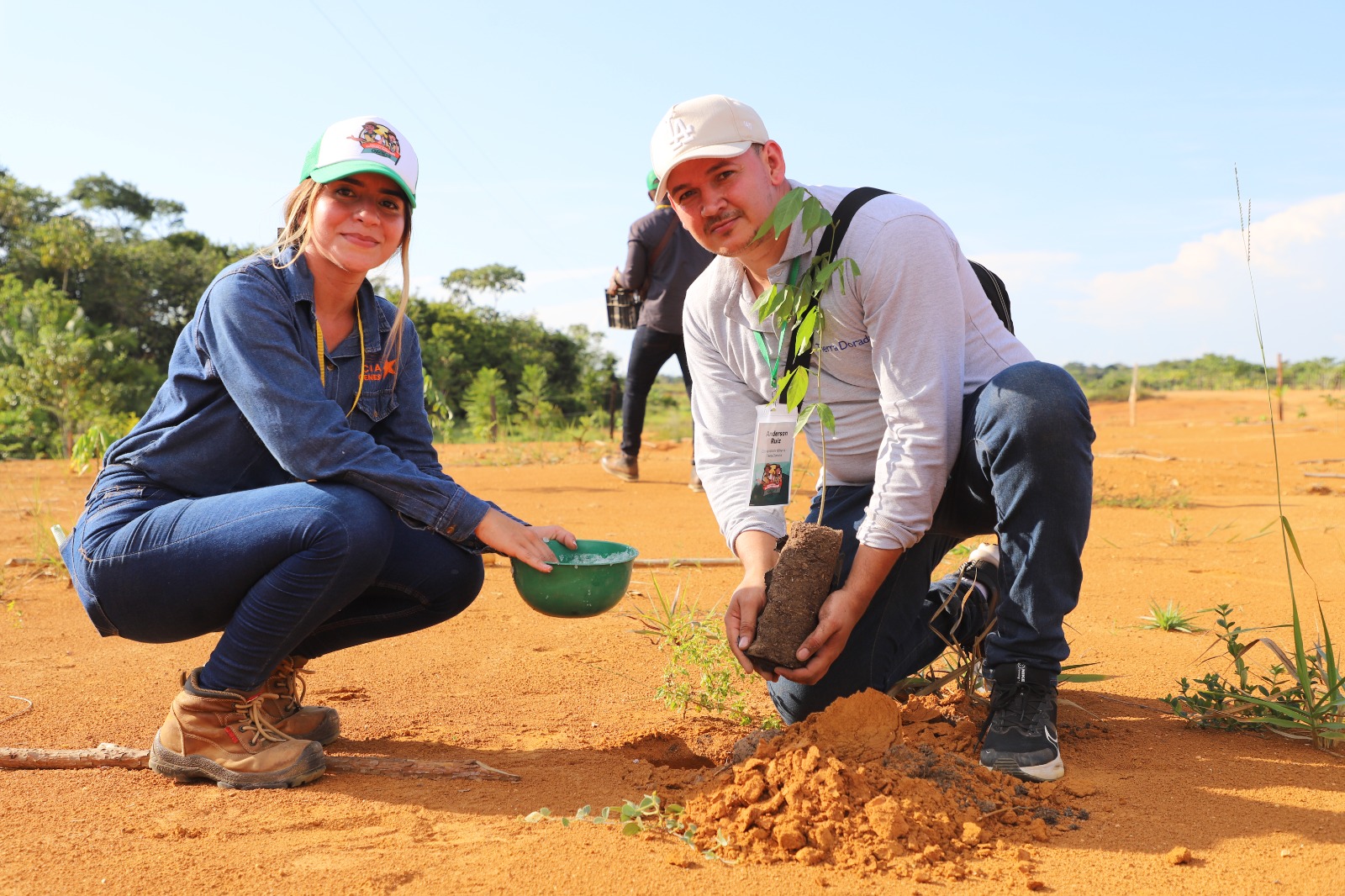Case Study
Advancing Responsible Artisanal Mining and Environmental Governance in Colombia
Unlocking Alternative Livelihoods While Restoring Ecosystems and Increasing Revenues
Environmental Management

The Challenge
Colombia’s artisanal and small-scale gold mining (ASGM) sector is a vital source of income for over 300,000 families, yet it has long operated in legal and environmental limbo. Over 60% of ASGM operations are informal or illegal, contributing to deforestation, mercury contamination, and financing of illicit economies. The sector’s complexity – rooted in weak governance, limited access to formal markets, and entrenched poverty – posed a major challenge to Colombia’s post-conflict development and environmental sustainability.Our Solution
A Multi-Pronged Strategy Addresses Environmental, Governance, and Economic Challenges
- Strengthening Governance and Legalization of Artisanal and Small-Scale Gold Mining. Chemonics worked closely with Colombian government entities to streamline mining formalization processes and align environmental regulations with ASGM realities. We facilitated legal pathways for miners to operate responsibly by acting as a neutral broker to build trust among stakeholders. We also supported the development of policy instruments and reporting templates that improved oversight and compliance.
- Restoring Ecosystems and Mitigating Environmental Harm. To address the environmental degradation caused by informal mining, Chemonics designed locally adapted rehabilitation models. These included reforestation with native and fast-growing species in Antioquia and community-led natural regeneration in Chocó to quickly stabilize degraded sites. We also promoted mercury-free mining technologies and embedded environmental monitoring into local governance systems to ensure long-term stewardship.
- Unlocking Market-Based Incentives for Responsible Mining. Chemonics demonstrated how market-based incentives can drive formalization and environmental compliance in the high-risk ASGM sector. By improving mining practices – such as introducing mercury-free technologies and optimizing gold recovery – Chemonics helped miners raise productivity and lower operational costs. We facilitated miners’ entry into formal supply chains that offered access to legal finance and higher prices than informal and illegal markets, creating tangible economic rewards for legal compliance. We also introduced mine management systems that ensured regulatory adherence and fostered a culture of continuous improvement, paving the way for miners to access premium markets for gold verified as responsibly sourced.
- Catalyzing Alternative Livelihoods and Inclusive Economic Development. To reduce dependency on mining and improve resilience, Chemonics co-developed alternative income streams such as honey production, supported by supply chain development and market linkages, which is especially attractive to marginalized women miners who are heads of households. Training and technical assistance empowered communities – especially women and Afro-Colombian groups – to lead ecological restoration and diversify household incomes.
- Embedding Adaptive Learning and Local Ownership. Chemonics used participatory vulnerability assessments, scenario planning, and governance instruments to co-develop solutions with communities and local institutions. These tools were embedded in adaptive monitoring systems, enabling partners to track progress, adjust strategies, and build resilience across operations.


The Impact
Transformative Results for Miners and the Environment
Chemonics delivered transformative results across environmental, economic, and governance dimensions:
- Eliminated 70 tons of mercury from mining operations, reducing toxic exposure and improving ecosystem health.
- Reclaimed over 17,000 hectares degraded by illegal mining operations through reforestation and natural regeneration, contributing to carbon sequestration, soil stabilization, and accelerated recovery of ecological functions.
- Supported the legalization and formalization of 146 ASGM operations, improving legal compliance and environmental oversight.
- Trained over 2,800 miners in responsible mining practices, including mercury-free technologies, mine management, and regulatory reporting.
- Laid the groundwork for Colombia’s National ASGM Formalization Policy, which was adopted and expanded.
- Enabled the sale of nearly 4 tons of legal gold, generating approximately $194 million in licit revenue.
- Secured over $14.4 million in royalties, taxes, and social security payments, contributing to public finance and local development.
- Supported the production of 120 metric tons of honey through community-managed apiaries, the largest community-based honey production portfolio in Colombia.
- Increased women’s participation in alternative livelihoods to 40%, strengthening gender equity and household resilience.